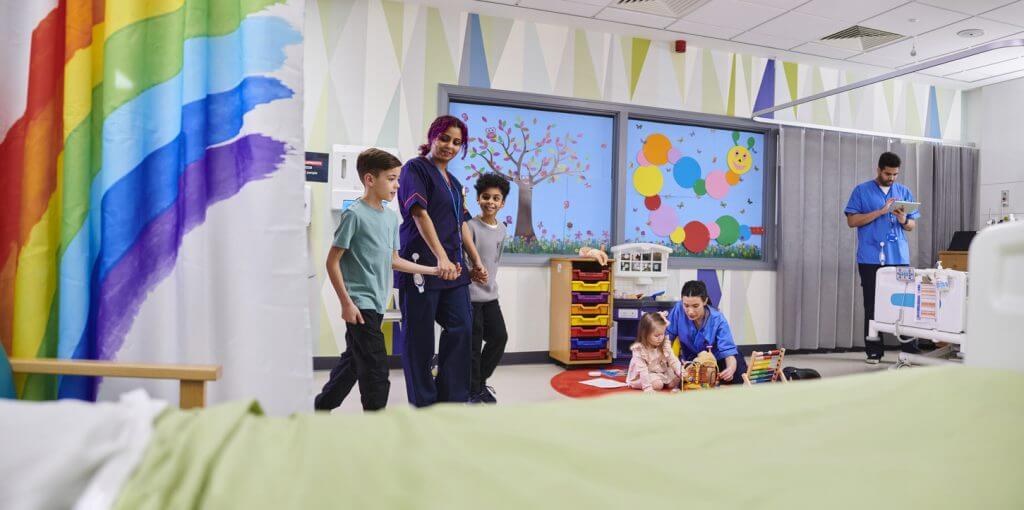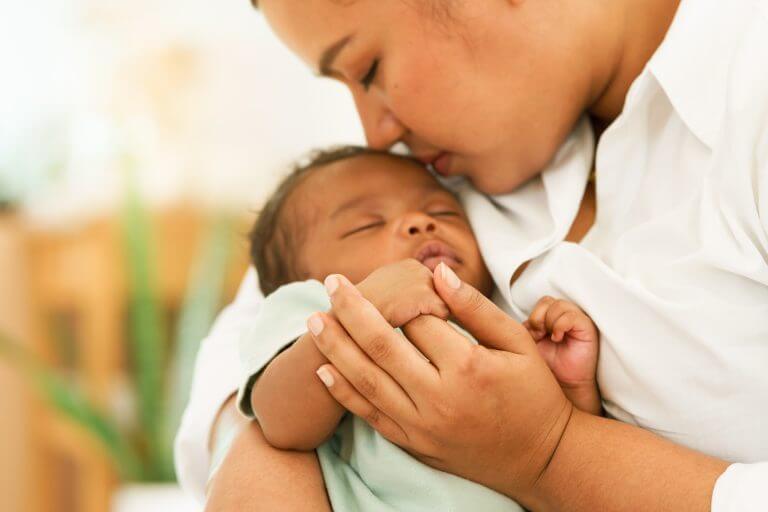NICHQ 25th ANNIVERSARY
Celebrate 25 years of MCH improvement
Join us in highlighting NICHQ’s dedication to improving systems of care in maternal and child health since its inception. Our first 25 years were a testament to people like you—nurses, doctors, educators, public health professionals, dedicated families, mission-driven foundations and government entities—our network of partners in improvement and advocates for change.

New Look, Same Commitment
Ensuring All Children Reach Their Optimal Health

During the past 25 years, NICHQ has led nearly 100 initiatives and reached millions of children and families. Our unique approach to improving children’s health systems gives more families access to care and coordinated services, and helps more children achieve better outcomes. Together with our partners, our work has helped the country achieve real changes in children’s health.
Our mission calls us to bold action, to build capacity and drive change in communities least empowered to give their children the brightest futures—communities with a disproportionate number of children living in poverty, children devalued by racism, ableism, and other forms of bias and discrimination.
Our Impact
NICHQ’s project work approaches pressing issues with a lens of shared learning, action, and impact, with a focus on equity, reducing health disparities, and addressing root causes of inequity. From our continued efforts, more mothers and birthing people, their children, and their families have better access to care, better coordinated services across systems and sectors, and better designed solutions by involving families and their communities.
What is one way you’ve seen NICHQ grow in the last 25 years?
Staff Appreciation
NICHQ Team in Action
NICHQ’s dedicated team of experts showcase their passion and influence daily in their work to improve health systems for children and their families.
NICHQ INitiatives
Helping every child reach their optimal health
Over 25 years, NICHQ has committed to improving quality of care for children and their families by supporting health professionals
Publications
Community infant safe sleep and breastfeeding promotion
A mixed-methods study to improve population-level health outcomes
Though breastfeeding is a protective factor against sudden unexpected infant death, motivations to breastfeed often couple with unsafe infant sleep practices. Racial/ethnic disparities are present in sudden unexpected infant death, accidental suffocation and strangulation in bed, and breastfeeding. The study aimed to investigate the relationship between community-level strategies and associated state-level outcomes for infant safe sleep and breastfeeding.
Findings
We identified two mixed insights: gaps in promotion and outcomes, and persistent disparities between infant safe sleep and breastfeeding promotion and outcomes. Findings indicate conversational approaches could improve infant safe sleep and breastfeeding promotion, outcomes, and relative disparities. Community collaboration is needed to address organizational capacity limitations in promoting infant safe sleep and breastfeeding.
What’s New from NICHQ
The Community-Centered Hospital Initiative
NICHQ was awarded $6.9M in growth funding by The Studio @ Blue Meridian to promote a new paradigm in which Communities, Hospitals, and state Perinatal Quality Collaboratives (PQCs) work together to eliminate disparities in maternal and infant mortality. This significant award will launch the Community-Centered Hospital Initiative (CCHI), developed by the NICHQ team.
Enhanced Equity Resources and Tools
NICHQ is committed to achieving equity in all forms, including race, nationality, gender identity, gender expression, sexual orientation, and ability. Get health equity updates from NICHQ including new frameworks and research, equity resources to improve your practice, insights and findings from NICHQ’s project work and more.
NICHQ Research and Evaluation Services
In addition to supporting program monitoring and evaluation, organization-level research and development, and publication efforts at NICHQ, our Department of Applied Research and Evaluation (DARE) possesses the expertise and interest to offer additional value to programs and organizations beyond NICHQ including implementation science, program evaluation, clinical research data management, and more.
Opportunities to Connect with NICHQ
NICHQ experts will be providing oral presentations and facilitating sessions at the American Public Health Association (APHA) 2024 Annual Meeting & Expo in Minneapolis. Stop by booth #1617 for opportunities to connect with NICHQ’s staff, hear about NICHQ-led projects and initiatives, and learn how you can get involved in our work.
Spread the Word
SIDS Awareness Month Social Media Toolkit
Health professionals and advocates can share these ready-to-use graphics and posts on social media to continue the conversation about the importance of creating safe sleeping environments for infants and encourage people to learn and promote safe sleep guidelines.
SIDS Awareness Month Toolkit
Share safe infant sleep information and resources

Save the Date
Weekly Observances
Five distinct weeks are celebrated during Breastfeeding Awareness Month.

NICHQ Insights
NICHQ’s 25th Anniversary Reading List
At NICHQ, we are committed to making breastfeeding and infant safe sleep the national norm. Check out our insights to learn how you can support this initiative.
NICHQ News
Stay in the Loop
Get information on observances like Breastfeeding Awareness Month and other NICHQ news delivered directly to your inbox.



















